Who Is In Charge Of Your Brain?
How Not To Be Stupid
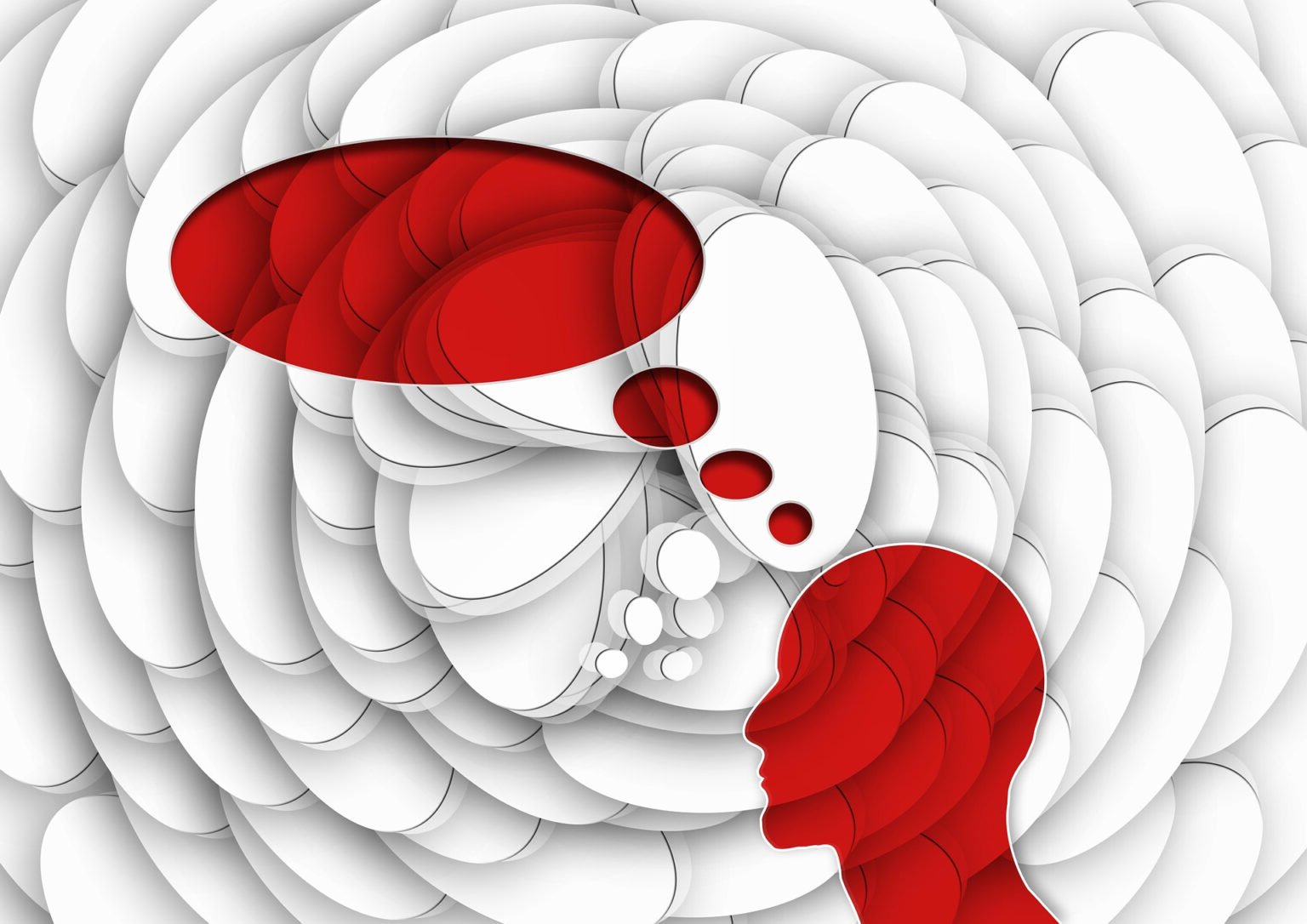
This Is Not A Silly Question - Who Is In Charge Of Your Brain?
Who is in charge of your brain? This matters because the outcomes that you experience in your life are determined by how you respond to the events that impact you.
The quality of your responses are shaped by how effectively you think, and this is a learned skill.
Your ability to think effectively, your responses, and the long term impact of the choices that you make can have a major effect on your health, wealth and happiness.
So let's take a look inside your skull and see if we can figure out who is in charge of your brain.
The Modular Brain
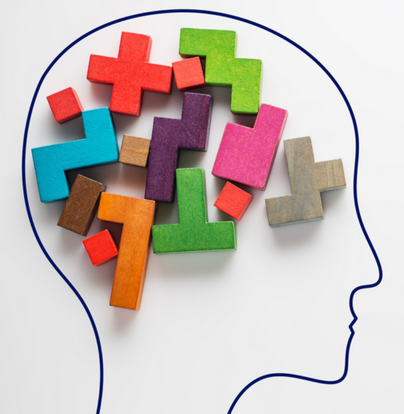
We experience our conscious mind as a single unified entity but from a neurological persective it isn't.
There is a growing and empirical body of findings in the world of neruoscience that shows that the brain is organized into semi-autonomous groups of neurons and regions of the brain that interact with one another through various pathways in the brain.
In other words your brain is a collection of distinct modules, performing specific functions, but it is not a unified system.
This of course begs the question as to why does your conscious mind seem to be one thing when the underlying mechanics of your brain are separate, localised and specialised?
Are the Buddhists correct when they talk about the illusion of a separate self?
Who, or what, is in charge of your brain?
Short answer no one, or more accurately, no one thing is controlling it!
Emergence
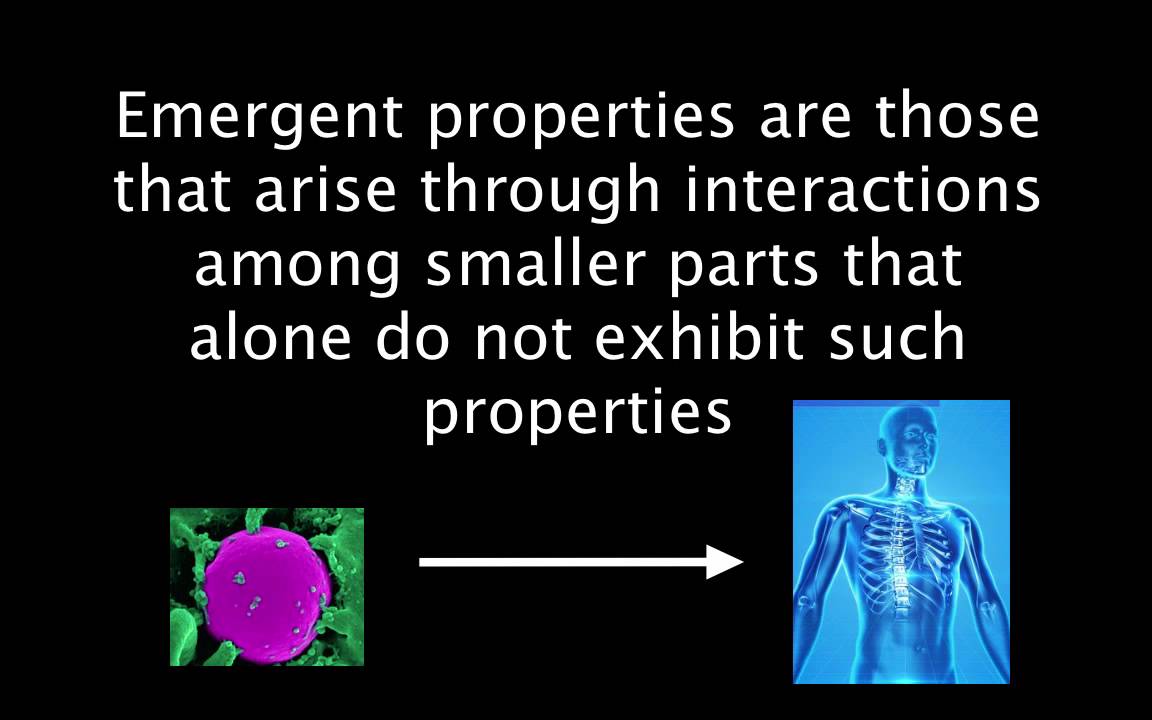
There is a principle of complex systems called "emergence" which explains how your modular brain creates what feels like a unified mind.
"Emergent properties" arise from the collaborative functioning of a complex system, but do not belong to any one part of that system.
For example, you can not determine the properties of an ant colony by observing the behaviour of a single ant.
Similarly, you can not determine the state of traffic at 5pm on a Friday afternoon at Interstate 405 in Los Angeles, or the Birmingham "Spaghetti Junction" in the UK, by observing the properties of a single car.
Although the human brain is not yet understood well enough to identify the mechanism by which emergence functions, most neurobiologists agree that complex interconnections among the parts give rise to qualities that belong only to the whole.
Human consciousness is often referred to as an emergent property of the human brain.
This insight highlights 2 big problems:
- "You" are the ghost in the machine of "your" brain.
- Your brain does not have a rational central command station - your interpretation of what you perceive and experience is dependent on the data that it is fed.
This means that:
- There is no independently originating "you".
- There is no central rational command centre.
- These things are the emergent properties of the complex interconnection, and interaction, of multiple modules within your brain.
This brings us back in a full circle. The answer to the question about who is in charge of your brain is that we can not pin it on a single facet of the brain, but rather it is the cumulative output of a number of processes - let's take a closer look at those processes.
The human brain has evolved a wide range of modules which filter,
interpret and explain and interpret what's going on in the world around
us. Their primary purpose is to help us survive. The Interpreter Neuroscientist Dr. Michael Gazzaniga describes one of these modules as The Interpreter as it seeks explanations and explains causality in what is happening in the events that we see and experience. The Interpreter then provides us with a plausible end to end narrative of what has happened and why. The Cause & Effect Narrative The interpreter is
constantly spinning stories of what’s going on around us, as it applies causal
explanations to the data it’s being fed; doing the best job it can with
what it’s got. But there is a further problem, as James Clear puts it: "You are walking around with the same hardware as your Paleolithic ancestors." What
this means is that over a few thousand generations of data input our
interpreters have honed theirs skills to keep you alive and reproducing.
The Problem Of Who Is In Charge Of Your Brain
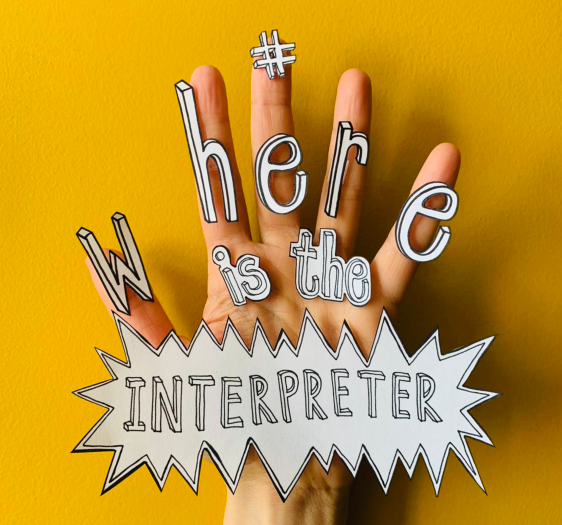
Your interpreter will always spin a plausible story, and it may make you feel safe and in control - that's its job, but it is so often deceived, deluded and just plain wrong and you may not realise it immediately or at all.
Falling Victim to The Narrative Fallacy
We frequently snag ourselves with the narrative fallacy. This is a reverse mirror mental snare that causes us to apply a linear and discernable cause-and-effect set of links to our knowledge of the past.
As Nassim Taleb points
out, there is a deep-seated neurological basis to the problem: we are overwhelmed
with so much sensory information that our brains have no choice but to put things in a sequenced order and operate as a linear scanner. It is only in this way that we can process the world around us.
The problem with narrative is that it lures us into believing that we can explain the past through cause-and-effect when we hear a story that supports our prior beliefs and we become subject to confirmation bias.
For example, stories of how businesses rise and fall resonate with readers by offering what the human mind needs: a simple message of triumph and failure that identifies clear causes and ignores the determinative power of luck and the inevitability of regression.
These stories induce and maintain an illusion of understanding, imparting lessons of enduring value to readers who are all too eager to believe them.
Stories may serve many wonderful functions: teaching, motivating, inspiring but the problem is that we too often believe our stories are predictive.
Hijacking Your interpreter must deal with what it’s
given, and as Gazzaniga’s work has shown, it can be tricked and
manipulated, Gazzaniga calls this “hijacking”. When this happens it leads to strange explanations
and decisions.
This is evidenced in much of the ridiculous behavior and stupid
narratives we see around us.
Your interpreter can be hijacked in so many ways, for example it:
Gazzaniga
identifies the root of the
problem of who's in charge of your brain:
How To Control Who Is In Charge Of Your Brain
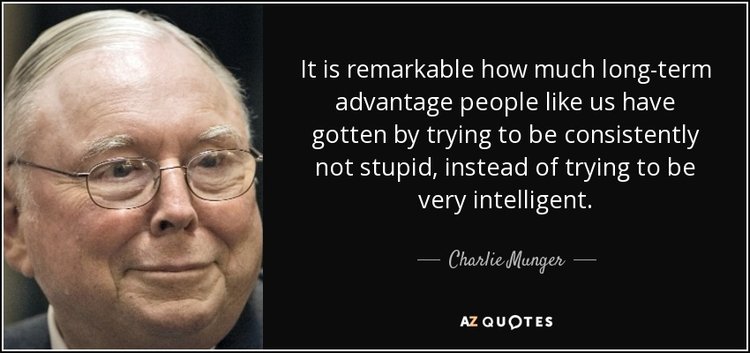
Avoiding Stupidity
So we have established some fairly grim realities about how your brain functions and how:
- It is hardwired to take the line of least resistance and jump to conclusions.
- It infers causality when often there is none.
- It is prone to a very wide range of cognitive biases and distortions.
- There is no central command and control function.
- Your interpreter is entirely dependent on the information that it is fed.
Speaking plainly, our default settings render us stupid and with a capacity for making poor decisions at the every day level and over the long term.
Stupidity is commonly associated with a lack of intellience, and whilst that may be true in some instances frequently that is not the case. As entrepreneur, thinker and trusted advisor Adam Robinson has observed:
That said, we have 2 wonderful factors that can work in our favour:
- We have the capacity for self-awareness, reflection and insight.
- We have brains with an extensive tool kit of resources and capabilities if we know how to apply them.
How Not To Be Stupid - 4 Key Tips
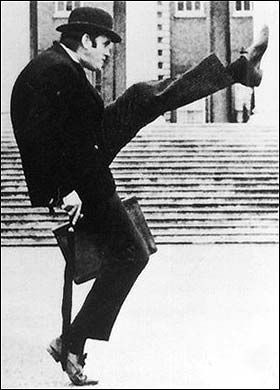
Adam Robinson identified 7 factors that lead to stupidity in everyday life
- Changing your routines or being outside of your normal environment.
- Being in the presence of, and distracted by, a group.
- Being in the presence of an expert, or being an expert.
- Undertaking a task that requires intense focus.
- Experiencing information overload.
- Fatigue and physical, emotional and psychological stress.
- Experiencing a sense of urgency and rushing.
Any one of these factors can be enough to cause stupidity, but when two or more of these factors are present the odds of you being cognitively compromised increase dramatically.
We are all prone to the full spectrum of human weaknesses, and we will never fully eliminate stupidity from our own behaviour.
However, we can reduce the likelihood of it occurring and take practical steps to mitigate its effects when it does and our original question as to who is in charge of your brain now becomes more a question of how you can monitor and modify your behaviour to minimise the instances of stupidity.
Based on my own experience, here are 4 tips on how not to be stupid.
Munger's 2 Track Analysis
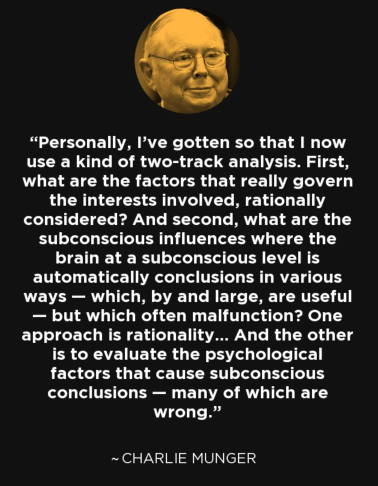
As regular readers of this site will know, I often reference Charlie Munger [Warren Buffet's partner at investment behemoth Berkshire Hathaway] who has a long standing and well deserved reputation for sharing uncommon sense and practical tips for avoiding stupidity.
While many of us make decisions daily, few of us have a useful decision making framework that protects us from stupidity.
To help Munger avoid stupidity he employs a two-track analysis:
[1] What are the facts? [Understand the forces at play]
The key to the first step is knowing what you know and what you don’t know, you need to understand your circle of competence.
While there are multiple factors that can go into decisions, there will always be a few variables and factors that will carry the bulk of the weight.
Munger suggests that if you’re operating within your circle of competence, it should be fairly straight forward to determine the relevant variables and forces at play.
Munger also suggests that: "...you need to pull in the big ideas from multiple disciplines to make sure you’re exercising good judgment".
The big ideas he is referring to are mental models which we have covered extensively on this site.
Munger suggests that if you have to make a decision in an area outside your circle of competence, that you use the tool of inversion.
[2] Where is my brain fooling me? [Understand how your subconscious might be leading you astray.]
There are so many causes of human misjudgment, it is well worth becoming deeply acquainted with these:
Cognitive Biases: The Psychology of Human Misjudgment
Finding Signal In The Noise

Living in the digital age we have access to more information than we can possibly handle. We are drowning in a tsunami of 24/7 news, a swamp of social media and cesspit of trivia and garbage.
We delude ourselves into believing that the more information we consume the better informed we will be. Nassim Taleb frames this as striving for "more signal and less noise" and he makes the following observations:
- We believe that the more information we consume the more signal we receive, but in practical terms this is just not true, it is a cognitive illusion.
- As you consume more data, the ratio of noise to signal increases, the less you really know about what’s going on and the more likely you are to jump to the wrong conclusions and make the wrong decisions.
- "The more frequently you look at data, the more noise you are disproportionally likely to get (rather than the valuable part called the signal); hence the higher the noise to signal ratio."
- Taleb refers to this as "the noise bottleneck".
- Taleb suggests that our brains are not hardwired to extract the signal from the noise and to understand the key point.
- "... in a natural environment, a stressor is information. So too much information would be too much stress..."
- "...so we overreact emotionally to noise."
Our original question as to who is in charge of your brain now reframes as: who is in charge of the flow of information into your brain?
Here 7 practical tips from the late Richard Feynman on how to find the signal in the noise.
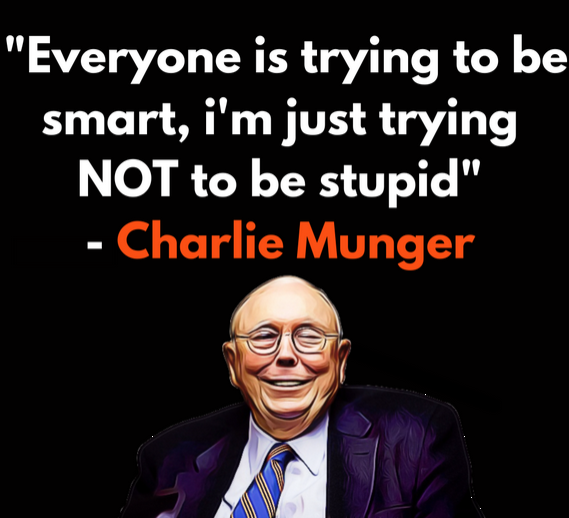
Next Article:
How To Be A Winner On A Very Large Scale
Further Reading
The Art Of Thinking Clearly - How To Do More Than Just Survive And Reproduce
The Conscious Mind Is Limited - Be Aware And Be Prepared
Return from: "Who Is In Charge?" to: Walking The Talk
LATEST ARTICLES
Master The Season You Are In - The Key to Fulfilling Your Purpose
 To fulfil your purpose, you must first master the season you are in. One of the biggest mistakes you can make in life is focusing all your energy on the next season instead of learning to master the s…
To fulfil your purpose, you must first master the season you are in. One of the biggest mistakes you can make in life is focusing all your energy on the next season instead of learning to master the s…The Inner Weight of Shame - Sustained By Attentional Fixation
 A Mind That Is Continuously Engaged In Self-Surveillance. Shame is one of the heaviest inner burdens a human being can carry. It does not announce itself loudly or demand attention through drama. Inst…
A Mind That Is Continuously Engaged In Self-Surveillance. Shame is one of the heaviest inner burdens a human being can carry. It does not announce itself loudly or demand attention through drama. Inst…Does Prayer Work? The Psychology of Prayer, Meditation and Outcomes
 Reality Is A Complex System Of Countless Interactions - Including Yours. So does prayer work? The problem is that the question itself is usually framed in a way that guarantees confusion. We tend to a…
Reality Is A Complex System Of Countless Interactions - Including Yours. So does prayer work? The problem is that the question itself is usually framed in a way that guarantees confusion. We tend to a…Living in Survival Mode Without Surrendering Mental Authority
Living in Survival Mode Without Surrendering Mental Authority
 Clear Thinking When You’re Just Trying to Stay Afloat. Many people today are overwhelmed because they are living in survival mode - not temporarily, but as a persistent condition of life. For many, th…
Clear Thinking When You’re Just Trying to Stay Afloat. Many people today are overwhelmed because they are living in survival mode - not temporarily, but as a persistent condition of life. For many, th…Manifestation Without Magic: A Practical Model
 Manifestation without magic is not a softer or more intellectual version of popular manifestation culture. It is a different model altogether. Popular manifestation teachings tend to frame reality as…
Manifestation without magic is not a softer or more intellectual version of popular manifestation culture. It is a different model altogether. Popular manifestation teachings tend to frame reality as…Staying Committed When You Can't See Progress - The Psychology of Grit
 Uncertainty Is Not The Absence Of Progress, Only The Absence Of Reassurance. One of the most destabilising experiences in modern life is not failure, but uncertainty and staying committed when you can…
Uncertainty Is Not The Absence Of Progress, Only The Absence Of Reassurance. One of the most destabilising experiences in modern life is not failure, but uncertainty and staying committed when you can…The Battle For Your Mind - How To Win Inner Freedom In A Digital Age Of Distraction
 From External Events to Inner Events. We often think of “events” as things that happen out there: the traffic jam, the rude comment, the delayed email reply. But what truly shapes our experience is wh…
From External Events to Inner Events. We often think of “events” as things that happen out there: the traffic jam, the rude comment, the delayed email reply. But what truly shapes our experience is wh…How to See Your Thoughts Without Becoming the Story
 A Practical Guide to Thought-Awareness. You can spend your life inside the stories of your mind without ever learning how to see your thoughts clearly and objectively. Most of the stuff we tell oursel…
A Practical Guide to Thought-Awareness. You can spend your life inside the stories of your mind without ever learning how to see your thoughts clearly and objectively. Most of the stuff we tell oursel…The Collison Decision Matrix - A Simple Framework for Better Choices
 The Collison Decision Matrix Is A Practical Everyday Thinking Tool. Most of us spend a surprising amount of time worrying about decisions. From small ones such as what to wear, what to eat, what to te…
The Collison Decision Matrix Is A Practical Everyday Thinking Tool. Most of us spend a surprising amount of time worrying about decisions. From small ones such as what to wear, what to eat, what to te…The Power Of Asking The Right Question
 The Power Of Asking The Right Question Lies In The Quest For Insight. To experience the power of asking the right question you must develop the practice of asking questions. The best way to improve th…
The Power Of Asking The Right Question Lies In The Quest For Insight. To experience the power of asking the right question you must develop the practice of asking questions. The best way to improve th…Site Pathways
 Here is a site pathway to help new readers of Zen-Tools navigate the material on this site. Each pathway is based around one of the many key themes covered on this site and contain a 150 word introduc…
Here is a site pathway to help new readers of Zen-Tools navigate the material on this site. Each pathway is based around one of the many key themes covered on this site and contain a 150 word introduc…